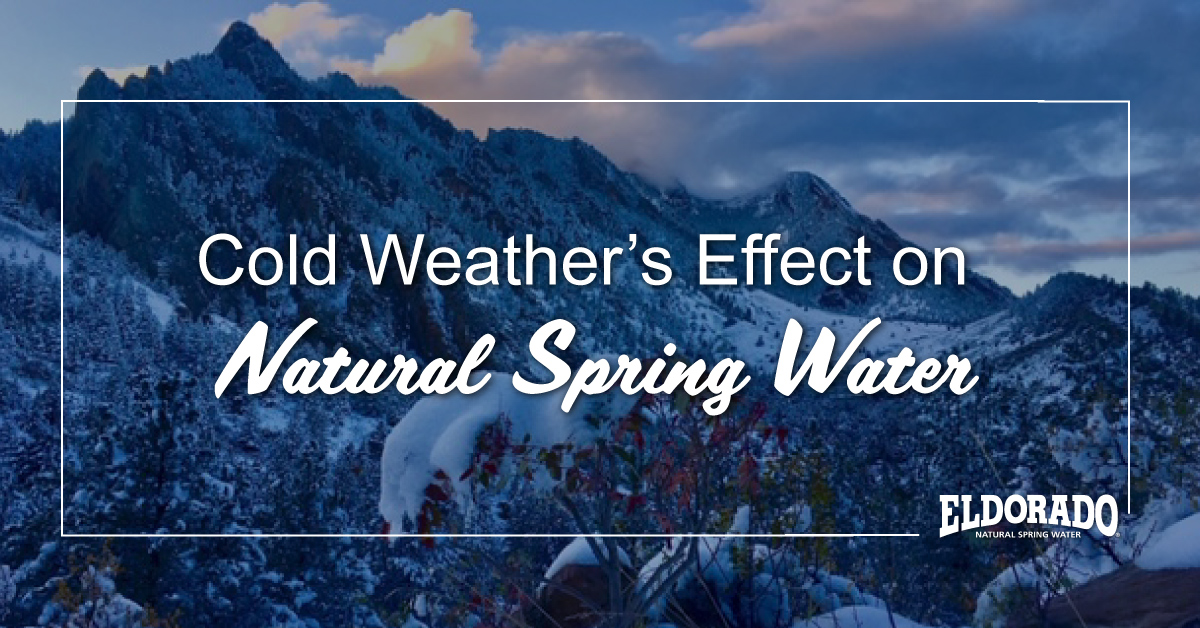Cold Weather’s Effect on Natural Spring Water

If you enjoy the healthy hydration and essential minerals provided to you directly from nature in the form of spring water, as so many people do, you might wonder how freezing air temperatures affect Eldorado’s natural spring source. Does cold weather cause groundwater and springs to freeze? Do icy conditions inhibit Colorado streamflows?
These are great questions! Read on for answers.
Cold Temperatures, Water Temperature, and Thermal Energy Transfer
You’re hiking in the mountains in winter when the daytime high temperature hasn’t exceeded the freezing point in a while. You arrive at what you expect to be a frozen creek, only to discover the water flowing. There’s some ice on the banks and in the surface waters of shallower areas, but you’re amazed to see the stream flow, if at a slightly reduced level.
The creek may very well freeze up later in the winter. But what’s keeping it moving at this point, despite freezing temperatures and a frosty wind chill?
The answer has to do with various aspects of physics, including how energy moves, heat transfer or heat conduction in water, kinetic energy, and others.
For starters, it’s important to ask the question, “How are springs formed?” since the answer affects how they keep from freezing. Springs develop when pressure forces water upward from an underground aquifer, which is an accumulation of groundwater.
In other words, it’s more of an active process than a simple seeping of water. And that motion is one factor in preventing freezing.
Another is that temperatures deep underground tend to remain above freezing and relatively constant. So, rather than turning to ice due to losing heat, water in an aquifer typically remains cold but liquid. Essentially, aquifers are nature’s water cooler!
As for rivers, streams, and creeks, they can freeze with prolonged exposure to cold temperatures since they aren’t insulated like groundwater sources. But that freezing often takes longer than you might expect. That’s because of things like the kinetic energy of moving liquids, the slightly higher temperature of riverbeds compared to the air temperature, etc.
Cold Weather and Drinking Water
Your body needs to be properly hydrated all year long. That includes the winter. In fact, as the dry air pulls moisture from your skin, you need to be particularly focused on getting enough fluids.
Sure, a tall glass of ice water may not be as appealing in the cold of winter as it is in the heat of summer, but there are many ways to get your fluids. You can use natural spring water to make your favorite tea, a cup of coffee, or a mug of hot chocolate! And a glass of cool (if not freezing cold) water is the perfect accompaniment for any meal.
So, don’t let chilly weather fool you. Your body needs plenty of fluid to stay hydrated and healthy. And while you can certainly do your own research on potential energy, internal energy, thermal conductivity, and other complex physics concepts, you can also trust us that our natural springs continue to produce some of the healthiest, best-tasting water on the planet 365 days a year!







